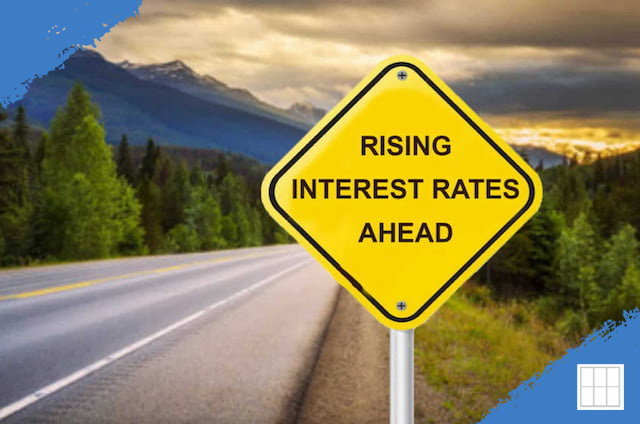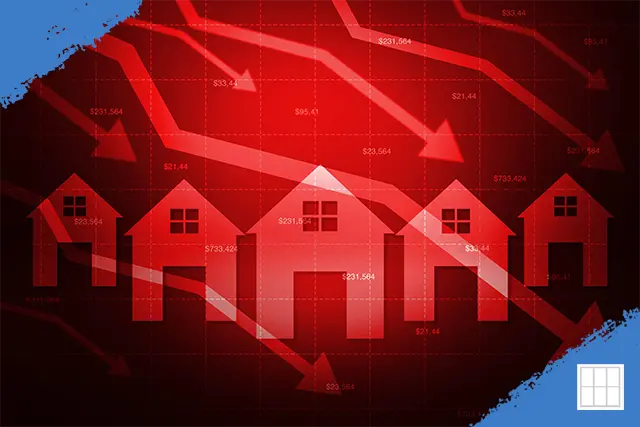Interest rates play a crucial role in the housing market, affecting everything from mortgage rates…

How Rising Interest Rates Affect Mortgages
For aspiring homeowners, one of the most critical factors to consider is the prevailing interest rates. The rising interest rate on a mortgage can significantly affect affordability and long-term financial planning. As interest rates rise, it becomes imperative for prospective buyers and current homeowners to understand how these changes can impact their mortgages.
We will explore the determinants of mortgage rates and the consequences of higher rates on affordability. We’ll discuss strategies to mitigate the effects of rising rates. Learn how Metropolitan Mortgage Corporation can assist homebuyers in Kansas City.
How Are Mortgage Rates Determined?
Mortgage rates are influenced by various factors, including:
- The Federal Reserve: The monetary policies set by the Federal Reserve can have a substantial impact on mortgage rates. When the Federal Reserve raises or lowers the benchmark interest rate, it directly affects short-term borrowing costs, which, in turn, can influence mortgage rates.
- Economic Factors: Mortgage rates are sensitive to economic indicators such as inflation, employment rates, GDP growth, and consumer sentiment. Strong economic indicators tend to lead to higher mortgage rates as lenders seek to mitigate potential risks.
- Creditworthiness: Lenders assess the creditworthiness of borrowers based on factors such as credit scores, debt-to-income ratio, and employment history. Borrowers with higher credit scores are typically offered lower interest rates.
How Higher Rates Affect Affordability:
Rising interest rates can have a significant impact on the affordability of homeownership. When mortgage rates increase, monthly mortgage payments also rise. This means that borrowers may have to allocate a larger portion of their income towards their mortgage, potentially reducing their purchasing power.
For instance, let’s consider a hypothetical scenario where a homebuyer is looking to purchase a $300,000 home with a 30-year fixed-rate mortgage. If the interest rate increases from 4% to 5%, the monthly mortgage payment would increase by approximately $150. Over the course of a 30-year loan term, this translates into an additional $54,000 in interest payments.
Mitigating Higher Rates: Refinancing and Loan Term
Refinancing is an effective strategy to mitigate the impact of rising interest rates. By refinancing their existing mortgage, homeowners can secure a new loan at a lower interest rate, thus reducing their monthly payments. However, it’s important to consider the associated costs of refinancing, such as closing fees, to ensure that the potential savings outweigh the expenses.
Opting for a shorter loan term, like a 15-year mortgage, can result in a lower interest rate. Monthly payments may be higher, but overall interest paid over the loan’s life is reduced. This provides long-term savings.
Improving Credit Scores to Improve Rates:
A borrower’s credit score plays a vital role in determining the interest rate offered by lenders. Higher credit scores demonstrate a borrower’s creditworthiness and reduce the perceived risk for lenders. To improve credit scores, individuals can:
- Pay bills on time: Consistently making timely payments on credit cards, loans, and other financial obligations can positively impact credit scores.
- Reduce debt-to-income ratio: Lowering the amount of debt compared to income can improve creditworthiness and increase the likelihood of securing a lower interest rate.
- Correct errors on credit reports: Regularly reviewing credit reports can help identify and rectify any errors that may negatively impact credit scores.
Conclusion:
Understanding the impact of rising interest rates on mortgages is crucial for prospective homebuyers and current homeowners. While higher rates may affect affordability, there are strategies to mitigate these effects. Refinancing, opting for shorter loan terms, and improving credit scores can all play significant roles in reducing the impact of rising interest rates.
Metropolitan Mortgage Corporation is a trusted partner for homebuyers in Kansas City. With their expertise and personalized service, they can guide individuals through the mortgage process. They help find suitable solutions, even when facing varying interest rates. By staying informed and seeking professional advice, homeowners can confidently navigate the evolving mortgage landscape. This helps them achieve their homeownership goals.



